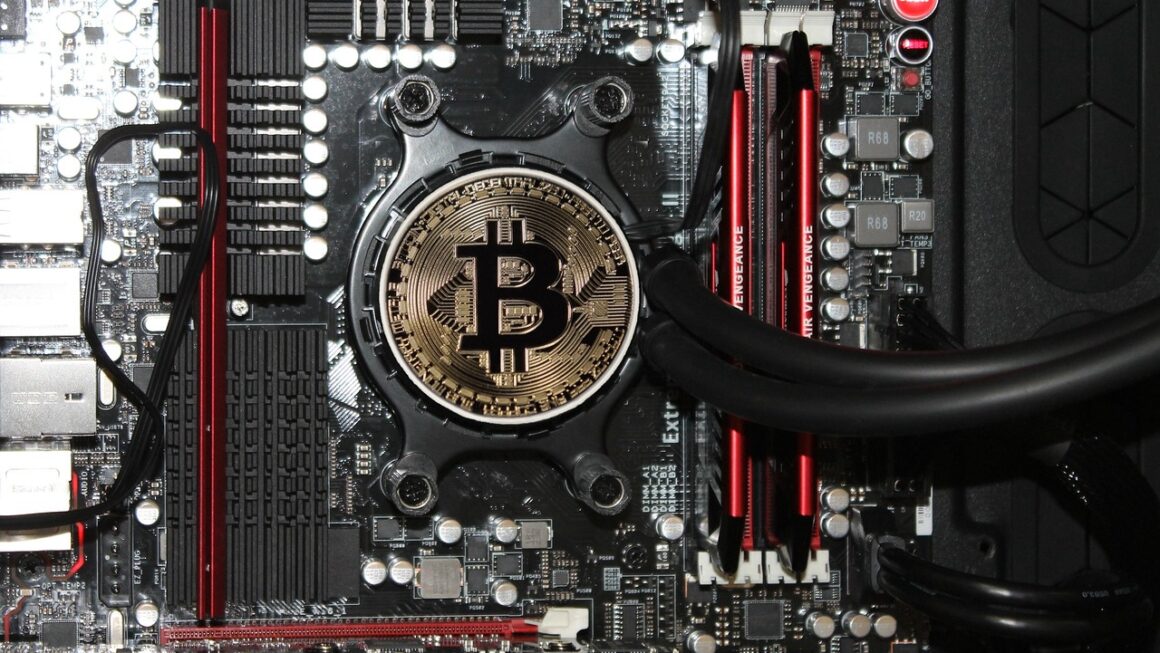Imagine a world where agreements are self-executing, transparent, and tamper-proof. This isn’t science fiction; it’s the reality enabled by smart contracts. These revolutionary pieces of code are transforming industries, from finance to supply chain management, by automating trust and streamlining processes. Let’s delve into the world of smart contracts and discover how they are reshaping the future of agreements.
What are Smart Contracts?
Definition and Core Principles
A smart contract is a self-executing contract written in code and stored on a blockchain. It automatically executes when predetermined conditions are met, eliminating the need for intermediaries. Think of it as a digital vending machine: once you deposit the correct amount of money (meet the condition), the machine dispenses the product (executes the agreement).
- Key Principles:
Autonomy: Executes automatically without manual intervention.
Transparency: Code and transactions are typically publicly auditable on the blockchain.
Immutability: Once deployed, smart contracts are very difficult, if not impossible, to alter.
Decentralization: Operates on a decentralized network, eliminating single points of failure.
* Trustless: Reduces the need to trust intermediaries, as the code enforces the agreement.
How Smart Contracts Work
Smart contracts are written in programming languages like Solidity (for Ethereum) or Vyper. They are then compiled and deployed to a blockchain. The blockchain acts as a shared, immutable ledger, recording every transaction and interaction with the contract.
The Role of Blockchain
Blockchain technology is the backbone of smart contracts. Its decentralized and immutable nature ensures the secure and transparent execution of agreements. Without blockchain, smart contracts would lack the trust and security they provide. The distributed ledger technology inherent in blockchains guarantees that no single entity can manipulate the terms or execution of the contract.
Benefits of Using Smart Contracts
Enhanced Security and Trust
Smart contracts significantly reduce the risk of fraud and manipulation. Since the code is transparent and immutable, it’s difficult for malicious actors to alter the terms of the agreement after it’s deployed. The decentralized nature of the blockchain also makes it highly resistant to attacks.
- Reduced Fraud: Eliminates the possibility of altering contract terms retroactively.
- Increased Transparency: All contract logic and transactions are publicly auditable.
- Immutable Records: Blockchain ensures permanent and verifiable record-keeping.
Increased Efficiency and Reduced Costs
By automating processes and eliminating intermediaries, smart contracts can significantly reduce transaction costs and improve efficiency. This is particularly beneficial in industries that rely on complex and time-consuming manual processes.
- Automated Execution: Reduces processing time and human error.
- Elimination of Intermediaries: Lowers transaction fees and overhead.
- Streamlined Processes: Simplifies complex workflows and accelerates completion.
Improved Transparency and Auditability
The transparency of smart contracts allows all parties involved to easily audit the contract terms and execution. This increased transparency fosters trust and reduces the potential for disputes.
- Publicly Auditable Code: Enables independent verification of contract logic.
- Real-time Transaction Tracking: Provides immediate visibility into contract execution.
- Enhanced Compliance: Simplifies regulatory compliance by providing verifiable records.
Practical Example: Supply Chain Management
Consider a supply chain using smart contracts to track goods. When a shipment arrives at a checkpoint (condition met), the smart contract automatically updates the inventory and triggers payment to the supplier. This eliminates the need for manual reconciliation and reduces the risk of errors or delays. A 2020 report by Deloitte indicated that leveraging blockchain and smart contracts in supply chains could reduce operational costs by up to 20%.
Use Cases of Smart Contracts
Decentralized Finance (DeFi)
Smart contracts are the foundation of DeFi, enabling lending, borrowing, and trading without traditional financial institutions.
- Automated Lending and Borrowing: Platforms like Aave and Compound use smart contracts to automate lending and borrowing processes.
- Decentralized Exchanges (DEXs): Platforms like Uniswap and SushiSwap use smart contracts to enable peer-to-peer trading of cryptocurrencies.
- Yield Farming: Smart contracts automate the process of earning rewards by staking or lending cryptocurrencies.
Supply Chain Management
As mentioned previously, smart contracts can streamline supply chain processes, improve transparency, and reduce costs.
- Tracking Goods: Ensuring authenticity and provenance of products.
- Automating Payments: Triggering payments upon delivery or milestone completion.
- Improving Efficiency: Streamlining logistics and reducing delays.
Healthcare
Smart contracts can improve data security and interoperability in the healthcare industry.
- Secure Data Sharing: Enabling patients to control access to their medical records.
- Automated Claims Processing: Streamlining insurance claims and reducing administrative overhead.
- Clinical Trial Management: Improving transparency and efficiency in clinical trials.
Real Estate
Smart contracts can simplify real estate transactions, reduce fraud, and improve transparency.
- Automated Escrow Services: Holding funds securely until all conditions are met.
- Tokenization of Assets: Enabling fractional ownership of properties.
- Streamlined Transactions: Reducing paperwork and closing times.
Challenges and Limitations
Security Vulnerabilities
Smart contracts are susceptible to security vulnerabilities, such as bugs in the code, which can be exploited by hackers. Thorough auditing and testing are crucial to mitigate this risk. A high-profile example is the DAO hack in 2016, which resulted in the theft of millions of dollars worth of Ether due to a vulnerability in the smart contract code.
- Code Audits: Regular audits by security experts are essential.
- Formal Verification: Using mathematical techniques to prove the correctness of the code.
- Bug Bounty Programs: Incentivizing developers to find and report vulnerabilities.
Scalability Issues
Blockchains can face scalability issues, which can impact the performance of smart contracts. Solutions like layer-2 scaling solutions are being developed to address this challenge. Ethereum, for instance, is transitioning to Ethereum 2.0 to improve scalability.
- Transaction Throughput: Limited number of transactions that can be processed per second.
- Gas Fees: Fluctuating gas fees can make smart contract execution expensive.
- Network Congestion: High network traffic can lead to delays and increased costs.
Regulatory Uncertainty
The regulatory landscape surrounding smart contracts is still evolving, creating uncertainty for businesses and developers. Clear and consistent regulations are needed to foster innovation and adoption.
- Legal Status: The legal enforceability of smart contracts is still being debated in many jurisdictions.
- Compliance Requirements: Ensuring smart contracts comply with relevant laws and regulations.
- Jurisdictional Issues: Determining which jurisdiction applies to cross-border smart contracts.
Complexity of Development
Developing secure and reliable smart contracts requires specialized skills and expertise. The complexity of smart contract development can be a barrier to entry for some businesses and developers.
- Programming Languages: Learning languages like Solidity and Vyper.
- Blockchain Technology: Understanding the intricacies of blockchain networks.
- Security Best Practices: Implementing secure coding practices to prevent vulnerabilities.
Conclusion
Smart contracts represent a paradigm shift in how agreements are formed and executed. While they present certain challenges, the benefits of increased security, efficiency, and transparency are undeniable. As blockchain technology continues to evolve and regulations become clearer, smart contracts are poised to play an increasingly important role in various industries, transforming the way we do business and interact with each other. By understanding the fundamentals of smart contracts and addressing their limitations, we can unlock their full potential and build a more efficient, transparent, and trustworthy future.
Read our previous article: Beyond The Hype: Pragmatic Tech Tool Innovation
For more details, see Investopedia on Cryptocurrency.




